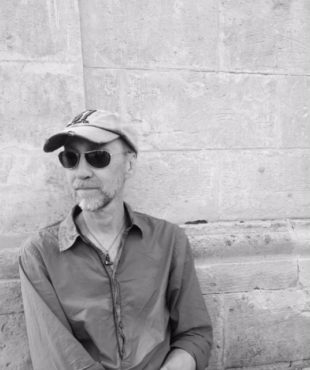Steven Erikson on the art of writing

Steven Erikson. Provided photo by Claire Thomas.
Steven Erikson is a prolific author and alumnus of the University of Victoria undergraduate writing program, as well as the University of Iowa Writers Workshop masters program. Erikson’s impressive portfolio of work — from his epic fantasy series Malazan Book of the Fallen to his science fiction series Willfull Child Trilogy — is a wonderful example of what writers can accomplish if they work hard and never stop learning.
One of the best ways to improve your writing is to learn from the writing of others. So when I got the chance to interview Erikson, I compiled a list of questions that would dig deep into the gold mine of experience he has accrued. What I came away with is a deeper understanding of a successful writer’s process, mind frame, and practice, and insight into Erikson’s university experience.
One of the first barriers many beginning writers come up against when they’re starting out is the fear of a blank page. I am all too familiar with the dreaded feeling that the page is mocking me, telling me I’ll never be able to craft a great sentence, let alone a great story.
This fear can be a massive roadblock, but Erikson is inspired by a blank page.
“At that point, all things are possible,” he explained. “Writing fiction is a process of narrowing down your options, line by line. This … can be both inspiring and challenging, as it applies a kind of creative pressure to your process.”
“Writers are sponges: we absorb whatever finds us … and what we absorb can have unexpected effects.”
Erikson’s next bit of insight was no less motivating. I asked what else inspired him to write and he gave an answer most writers can relate to.
“Well, pretty much everything, to be honest … As with all artists, writers are sponges: we absorb whatever finds us … and what we absorb can have unexpected effects … Bottling it up is usually disastrous, which is what drives us to get it out there.”
It’s comforting to understand that inspiration is innate. Artists are sponges. We absorb the world and what we squeeze back out is a version of life that has been interpreted and transformed by our imagination. We already have what it takes, we just have to find the honest part of us that’s willing to show that to the world.
Erikson is the real deal. He graduated with a Bachelor of Arts in Creative Writing from Uvic, attended a prestigious masters program in Iowa, and has gained millions of readers around the world. It occurred to me that, as someone aiming for a similar trajectory, I have a good chance of experiencing at least some of the same successes — and the many different masters programs around the world could be a good way to achieve this. So, I asked Erikson what his experience was in Iowa so he could share the kernels of wisdom he had brought back.
“I always hold that honesty is the best policy. I learned more about the craft of writing in my undergraduate Creative Writing degree at the University of Victoria than I did at Iowa. For me at least, UVic’s was the better program by far,” he admitted.
“Having said that, Iowa gave me two more years to write, my thesis ended up being my first publication, … and without my external thesis advisor, Peter Nazareth, I would not have gotten that collection published.”
Erikson’s observations served as a lightbulb moment for me. A clear indication that no matter where you learn, there is something to be taken from the experience. And if you can find a mentor, you’re ahead of the game.
“Finish what you start. Don’t bail when the going gets hard. If you do, you’re just avoiding the learning stage of writing.”
Finally, I asked Erickson what his best advice is for writing students, and what he shared lit a new fire in me.
“Finish what you start. Don’t bail when the going gets hard. If you do, you’re just avoiding the learning stage of writing … It’s work; treat it like that. Be disciplined.”
A difficult but important pill to swallow.
“You can never please everyone. Each story I undertake … depends on [a] leap of faith … Every time. If you crash and burn, you just pick yourself back up and start again.”
It was almost as though he knew my personal experience. Or perhaps all writers can relate.
“One more thing: respect your audience,” said Erikson. “You’re not their prophet or guru or saviour. You’re not their teacher in life … If you think you are; if you think you have all the answers … please, don’t write fiction… That kind of arrogant presumption of superiority has no place in being an honest writer. Writing fiction is a quest, a tentative and respectful and humble exploration of what it means to be human: it’s not even your job to find the right answers, be happy in just finding the right questions.”
That bears repeating. “Be happy in just finding the right questions.”
As a student of UVic and of life, I often find myself looking for answers. I go to class expecting to one day come away with the revelation that I know how to be a great writer. Truthfully, the more I learn, the more I realize there is left to learn. But the experience of asking questions, especially of my favourite Canadian authors, brings me closer to the questions that will propel me toward success.







